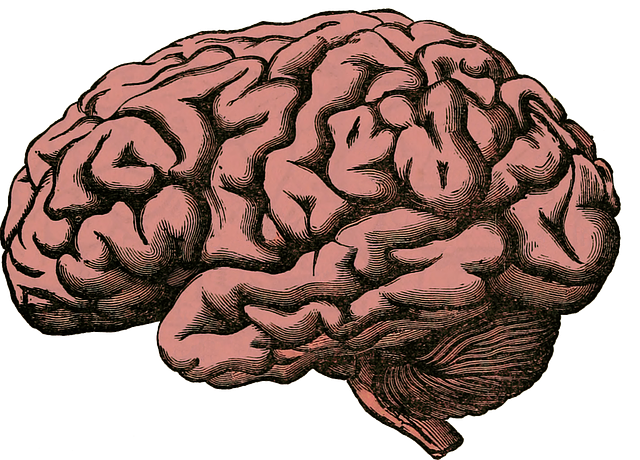Westminster Mandarin Chinese Speaking Therapy (WMCT) combines Eastern healing methods with Western psychology to offer unique mental wellness support for China-speaking communities in the UK. This program focuses on mood management and cultural identity, providing group sessions, individual therapy, and community outreach. WMCT's evaluation involves standardized tools and qualitative data to measure changes in anxiety, depression, and stress management. Key Performance Indicators (KPIs) are used to track program effectiveness, while a continuous improvement approach ensures the therapy stays relevant and impactful, fostering mental wellness through tailored interventions.
The Westminster Mandarin Chinese Speaking Therapy (WMCT) program offers a unique approach to mental wellness, tailored to the cultural needs of Mandarin-speaking communities. This article explores effective evaluation methods for WMCT programs, delving into key performance indicators (KPIs) and feedback loops that drive continuous improvement. By understanding and measuring the success of WMCT, we can enhance its impact on client outcomes and ensure culturally sensitive mental health support.
- Understanding Westminster Mandarin Chinese Speaking Therapy (WMCT) and its Approach to Mental Health
- Evaluation Methods for Measuring the Effectiveness of WMCT Programs
- Key Performance Indicators (KPIs) in Assessing Client Outcomes
- Continuous Improvement: Using Feedback Loops for Refining WMCT Strategies
Understanding Westminster Mandarin Chinese Speaking Therapy (WMCT) and its Approach to Mental Health

Westminster Mandarin Chinese Speaking Therapy (WMCT) is a pioneering program that offers a unique cultural perspective on mental wellness, tailored to the specific needs of the Chinese-speaking community in the UK. This therapeutic approach recognizes the importance of language and culture in shaping individuals’ emotional well-being. By combining traditional Chinese healing practices with modern psychological theories, WMCT provides a safe and supportive environment for clients to explore and manage their mental health challenges.
The program’s central focus is on empowering individuals to develop effective mood management skills while embracing their cultural identity. Through group sessions, individual therapy, and community outreach, WMCT facilitates open discussions about mental health, aiming to increase public awareness campaigns development around emotional regulation. By bridging the gap between Eastern and Western therapeutic practices, this initiative offers a comprehensive strategy to support individuals in cultivating resilience and achieving long-term mental wellness.
Evaluation Methods for Measuring the Effectiveness of WMCT Programs

The evaluation of Mental Wellness programs, particularly those offering Westminster Mandarin Chinese Speaking Therapy (WMCT), requires a multifaceted approach to accurately gauge their impact on participants’ mental health and well-being. One key method involves pre- and post-program assessments, where standardized questionnaires and interviews are used to measure changes in symptoms related to anxiety, depression, and stress management. These tools allow for quantitative comparisons, helping researchers and practitioners understand the program’s effectiveness.
Additionally, qualitative methods such as focus groups and individual interviews provide valuable insights into participants’ experiences and perceptions of the WMCT programs. This approach captures personal narratives, emotional shifts, and perceived improvements in mental health awareness and coping strategies. By combining quantitative and qualitative data, evaluation methods can offer a comprehensive understanding of how these programs contribute to enhanced stress management and overall mental health education, ultimately informing program design and improving support for Chinese-speaking communities.
Key Performance Indicators (KPIs) in Assessing Client Outcomes

When evaluating the effectiveness of a mental wellness program, such as those offered by Westminster Mandarin Chinese Speaking Therapy, Key Performance Indicators (KPIs) serve as crucial metrics to assess client outcomes. These KPIs provide a structured framework to track progress and measure success, ensuring that programs are aligned with their intended goals. By setting clear and specific KPIs, therapists and organizations can gain valuable insights into the impact of their interventions. For instance, improvements in client satisfaction scores, reduction in symptom severity levels, or increased engagement in self-care practices could be key indicators of a successful program.
In the context of mental wellness initiatives, Westminster Mandarin Chinese Speaking Therapy might focus on KPIs like burnout prevention rates among participants, as it is a significant concern in today’s fast-paced society. Tracking the adoption and sustainability of self-care practices post-program can also offer valuable data for improvement. Furthermore, public awareness campaigns development, which aim to destigmatize mental health issues, could be evaluated through KPIs measuring community engagement and participation rates, ensuring that efforts are effective in fostering a supportive environment for open dialogue and access to therapy services.
Continuous Improvement: Using Feedback Loops for Refining WMCT Strategies

Mental wellness programs, such as Westminster Mandarin Chinese Speaking Therapy (WMCT), can significantly benefit from a continuous improvement approach. This involves establishing robust feedback loops to gather insights and refine strategies. By actively seeking input from participants, therapists, and stakeholders, WMCT can identify areas of success and potential challenges in its practices, including Compassion Cultivation Practices and Communication Strategies.
These feedback mechanisms enable the program to adapt and enhance its offerings over time, fostering Self-Esteem Improvement and ensuring the interventions remain relevant and effective. Through iterative processes, WMCT can better cater to the evolving needs of its community, ultimately leading to more positive mental health outcomes.
The evaluation of mental wellness programs, such as Westminster Mandarin Chinese Speaking Therapy (WMCT), is vital to ensuring their effectiveness and client outcomes. By employing robust measurement tools and key performance indicators (KPIs), we can assess the success of WMCT strategies in addressing unique cultural and linguistic needs. Continuous improvement through feedback loops allows for refining these approaches, ultimately enhancing the overall well-being of participants. This comprehensive evaluation framework is essential to not only optimizing WMCT programs but also advancing mental health support for Mandarin-speaking communities.














